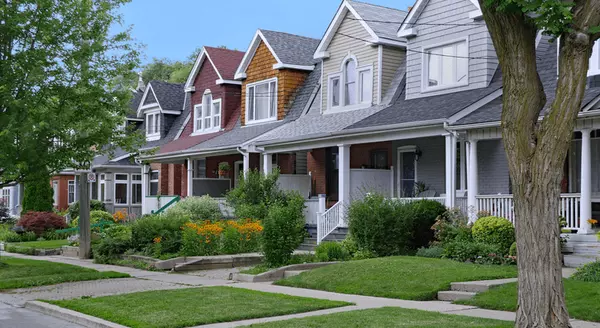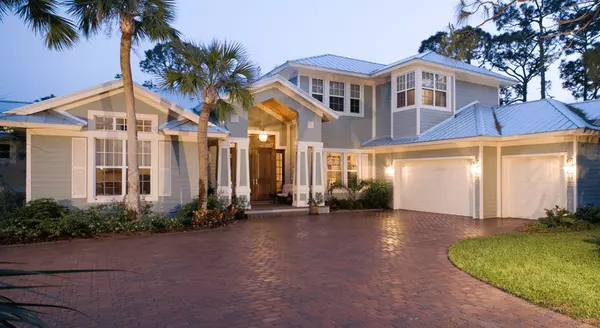November 2024 Real Estate Market Report: Greater Tampa Region

As we step into November, the Tampa Bay real estate market remains dynamic, with shifting buyer and seller behaviors driven by economic conditions, seasonal factors, and Tampa’s steady growth as a desirable market. Here's a detailed analysis of key trends impacting buyers and sellers this month. 1. Home Prices and Appreciation Trends In November, home prices in the greater Tampa area have seen moderate appreciation. According to recent data, median home prices remain elevated compared to last year, though the rapid price growth seen in previous years has slowed. In Tampa and surrounding areas, homes continue to sell at higher-than-national-average prices, a trend attributed to ongoing demand fueled by Tampa’s growing population and its reputation as an affordable alternative to pricier metros like Miami and Orlando. While price increases have decelerated compared to the past two years, it’s worth noting that Tampa remains attractive to out-of-state buyers from high-cost regions, particularly in the Northeast and Midwest. This influx supports the market’s resilience, as out-of-state buyers often bring higher budgets and are willing to pay premium prices for Tampa properties. 2. Inventory Levels November has seen continued low inventory across the greater Tampa area, a common trend in many secondary markets. Limited housing supply persists as a challenge, partially due to a "lock-in" effect where current homeowners with low mortgage rates are reluctant to sell in today’s higher interest rate environment. Consequently, inventory levels are tight, keeping competition among buyers high, especially for move-in-ready homes. For sellers, this shortage of homes on the market creates a favorable environment, particularly for those with well-maintained properties in desirable neighborhoods. Homes in prime areas, such as South Tampa and the Westshore District, continue to attract considerable interest, and properties often receive multiple offers if they are appropriately priced. 3. Mortgage Rates Impacting Buyer Demand Mortgage rates are currently around 7-8%, a stark increase from recent years. These elevated rates have impacted affordability and buyer sentiment, especially among first-time buyers. However, despite higher rates, demand remains robust in Tampa due to its strong job market, quality of life, and relatively affordable housing options compared to other large cities. Many buyers are still active, particularly in the mid-to-upper price ranges, where buyers may have more cash on hand or are less affected by mortgage rate hikes. Additionally, some lenders are offering rate buydowns or creative financing solutions to help make homeownership more accessible. As we look ahead, industry experts speculate rates may stabilize or even decrease in 2024, potentially sparking renewed interest among rate-sensitive buyers. 4. Seasonal Trends and Holiday Market Conditions Historically, November is a slower month for real estate due to the holiday season, as buyers and sellers often pause activity in preparation for year-end. However, this year’s seasonality could be less pronounced in Tampa due to sustained demand and limited inventory. While some buyers may take a break during the holidays, motivated buyers remain active, hoping to secure deals and close before the end of the year. This can be a good time for sellers to list properties, as holiday listings face less competition, helping homes to stand out in the market. Additionally, snowbirds and retirees looking to move to Florida for the winter months also contribute to buyer demand during this season. The influx of seasonal residents and retirees ensures that Tampa’s market activity stays relatively steady compared to other regions. 5. Rental Market and Investment Opportunities The rental market in Tampa has remained strong, with rental rates steadily increasing in response to high demand. Rental properties, particularly in areas with proximity to the coast, urban amenities, and job centers, are seeing high occupancy rates. Investors continue to view Tampa as a desirable market, with returns on rental properties remaining attractive compared to other parts of Florida. Given the current interest rates, more prospective buyers are choosing to rent, pushing up rental demand. This trend creates opportunities for both local and out-of-state investors, as Tampa’s population growth supports a stable renter pool. Investors interested in multi-family properties or vacation rentals are finding good prospects in popular areas like downtown Tampa, Seminole Heights, and the Channel District. Looking Ahead: 2025 Market Projections As we approach 2025, the Tampa Bay real estate market is projected to experience moderate but steady growth, shaped by a blend of economic factors and demographic trends. Mortgage Rates Stabilization or Potential DeclineWhile rates have remained high in 2024, some economists predict they may ease in 2025, possibly encouraging a new wave of buyers. Lower rates could expand purchasing power and drive demand, especially among buyers who postponed purchasing during higher-rate periods. Continued Demand from Out-of-State BuyersTampa’s appeal to buyers from high-cost regions like the Northeast, Midwest, and West Coast is expected to remain strong. Tampa offers a relatively affordable and high-quality lifestyle compared to major metros, which is likely to keep the city attractive to remote workers, retirees, and younger families relocating to Florida. Inventory Constraints PersistInventory challenges are expected to continue, especially with many current homeowners locked into low mortgage rates, making them less likely to sell. New construction may help alleviate some of the pressure, but the housing shortage may persist, creating favorable conditions for sellers while maintaining price stability. Growth in Rental Market and Investment OpportunitiesWith Tampa’s population projected to grow, rental demand will likely stay strong, making it a favorable environment for investors. Rising rental rates and high occupancy continue to make Tampa attractive for those looking to invest in multi-family and vacation rentals, particularly in areas close to downtown and waterfronts. Resilience in Home Values and Moderate Price AppreciationWhile national price appreciation may slow, Tampa’s value retention is projected to remain stable due to high demand and limited inventory. Experts anticipate moderate home price increases in 2025, especially in prime neighborhoods, allowing sellers to still achieve strong returns. Conclusion As we look toward 2025, the Tampa Bay real estate market continues to present both challenges and opportunities. Sellers are likely to benefit from ongoing low inventory and steady demand, while buyers face some affordability hurdles from potentially high borrowing costs. However, Tampa’s strong appeal, high quality of life, and value retention offer compelling reasons for buyers to stay engaged in the market. Whether you’re considering selling, buying, or investing in 2025, staying informed on these trends can help you make strategic decisions that align with your goals. If you’re interested in discussing your options or crafting a plan for the year ahead, let’s connect to create a strategy that works best for your real estate goals!
Read More2025 Housing Market Forecasts: What To Expect

Looking ahead to 2025, it’s important to know what experts are projecting for the housing market. And whether you’re thinking of buying or selling a home next year, having a clear picture of what they’re calling for can help you make the best possible decision for your homeownership plans. Here’s an early look at the most recent projections on mortgage rates, home sales, and prices for 2025. Mortgage Rates Are Projected To Come Down Slightly Mortgage rates play a significant role in the housing market. The forecasts for 2025 from Fannie Mae, the Mortgage Bankers Association (MBA), the National Association of Realtors (NAR), and Wells Fargo show an expected gradual decline in mortgage rates over the course of the next year (see chart below): Mortgage rates are projected to come down because continued easing of inflation and a slight rise in unemployment rates are key signs of a strong but slowing economy. And many experts believe these signs will encourage the Federal Reserve to lower the Federal Funds Rate, which tends to lead to lower mortgage rates. As Morgan Stanley says: “With the U.S. Federal Reserve widely expected to begin cutting its benchmark interest rate in 2024, mortgage rates could drop as well—at least slightly.” Expect More Homes To Sell The market will see an increase in both the supply of available homes on the market, as well as a rise in demand, as more buyers and sellers who have been sitting on the sidelines because of higher rates choose to make a move. That’s one big reason why experts are projecting an increase in home sales next year. According to Fannie Mae, MBA, and NAR, total home sales are forecast to climb slightly, with an average of about 5.4 million homes expected to sell in 2025 (see graph below): That would represent a modest uptick from the lower sales numbers in 2023 and 2024. For reference, about 4.8 million total homes were sold in 2023, and expectations are for around 4.5 million homes to sell this year. While slightly lower mortgage rates are not expected to bring a flood of buyers and sellers back to the market, they certainly will get more people moving. That means more homes available for sale – and competition among buyers who want to purchase them. Home Prices Will Go Up Moderately More buyers ready to jump into the market will put continued upward pressure on prices. Take a look at the latest price forecasts from 10 of the most trusted sources in real estate (see graph below): On average, experts forecast home prices will rise nationally by about 2.6% next year. But as you can see, there’s a range of opinions on how much prices will climb. Experts agree, however, that home prices will continue to increase moderately next year at a slower, more normal rate. But keep in mind, prices will always vary by local market. Bottom Line Understanding 2025 housing market forecasts can help you plan your next move. Whether you're buying or selling, staying informed about these trends will ensure you make the best decision possible. Reach out to a trusted real estate agent to discuss how these forecasts could impact your plans.
Read MoreWhy a Foreclosure Wave Isn’t on the Horizon

Even though data shows inflation is cooling, a lot of people are still feeling the pinch on their wallets. And those high costs on everything from gas to groceries are fueling unnecessary concerns that more people are going to have trouble making their mortgage payments. But, does that mean there’s a big wave of foreclosures coming? Here’s a look at why the data and the experts say that’s not going to happen. There Aren’t Many Homeowners Who Are Seriously Behind on Their Mortgages One of the main reasons there were so many foreclosures during the last housing crash was because relaxed lending standards made it easy for people to take out mortgages, even when they couldn’t show they’d be able to pay them back. At that time, lenders weren’t being as strict when looking at applicant credit scores, income levels, employment status, and debt-to-income ratio. But since then, lending standards have gotten a whole lot tighter. Lenders became much more diligent when assessing applicants for home loans. And that means we’re seeing more qualified buyers who have less of a risk of defaulting on their loans. That’s why data from Freddie Mac and Fannie Mae shows the number of homeowners who are seriously behind on their mortgage payments (known in the industry as delinquencies) has been declining for quite some time. Take a look at the graph below: What this means is that, not only are borrowers more qualified, but they’re also finding ways to navigate through their challenges, exploring their repayment options, or maybe even using the record amount of equity they have to sell and avoid foreclosure entirely. The Answer Is: There’s No Sign of a Wave Coming Before there can be a significant rise in foreclosures, the number of people who can’t make their mortgage payments would need to rise significantly. But, since so many buyers are making their payments today and homeowners have so much equity built up, a wave of foreclosures isn’t likely. Take it from Bill McBride of Calculated Risk – an expert on the housing market who, after closely following the data and market leading up to the crash, was able to see the foreclosure crisis coming in 2008. McBride says: “We will NOT see a surge in foreclosures that would significantly impact house prices (as happened following the housing bubble) for two key reasons: 1) mortgage lending has been solid, and 2) most homeowners have substantial equity in their homes.” Bottom Line If you’re worried about a potential foreclosure crisis, know there’s nothing in the data to suggest that’ll happen. Buyers are more qualified now, and that’s one reason why they’re not falling seriously behind on their mortgage payments.
Read More
Categories
- All Blogs 62
- Affordability 3
- Agent Value 2
- Buyer's Tips 5
- Buyers 41
- Closing Costs 1
- Down Payments 2
- Economy 6
- Equity 1
- Forecasts 3
- Foreclosures 1
- Home Prices 5
- Homeowners 4
- Housing Market 8
- Inventory 4
- Laws 1
- Luxury 1
- Luxury Homes 1
- Mortgage Rates 14
- New Construction 4
- News 2
- Real Estate Agent 4
- Real Estate Market Report 1
- Sellers 24
- Selling Tips 6
- TAMPA BAY Community 1
- Vacation 1
Recent Posts











